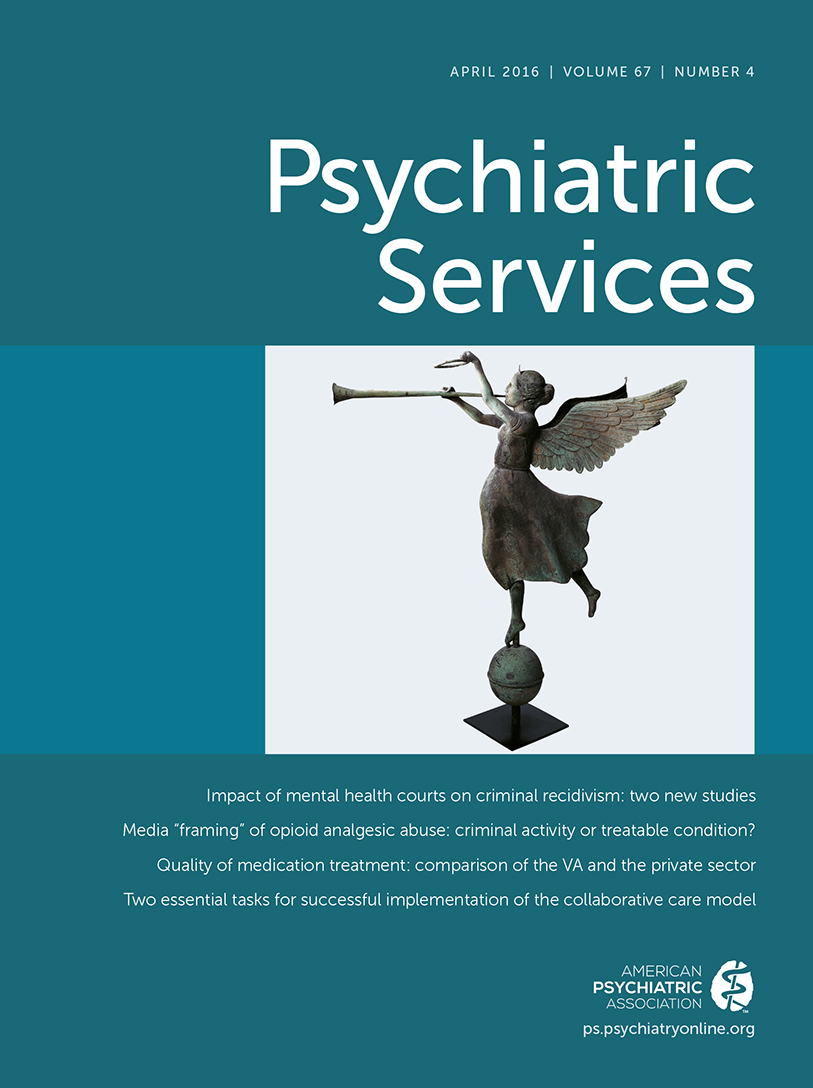Longer-Term Impacts of Mental Health Courts: Recidivism Two Years After Exit
Abstract
Objective:
This study compared recidivism among mental health court (MHC) participants and MHC-eligible defendants in traditional criminal court (TCC) two years after MHC exit or court disposition to investigate longer-term MHC impacts and effects beyond provision of treatment and services.
Methods:
Archival data from the pretrial services agency and MHC judges were used. Four measures of recidivism (any rearrest, number of rearrests, any felony arrest, and time to rearrest) were used to compare 408 MHC participants and 687 MHC-eligible defendants in TCC in the same judicial district. Both groups were provided individualized plans from the same package of services and supervision by the same pretrial services and community agencies. MHC completers and noncompleters were examined separately. Multivariate logistic analyses controlled for confounding variables.
Results:
Reductions in recidivism were observed in all three groups from two years before the key arrest to two years after court exit or court disposition. The reduction was greatest among MHC completers: the proportion rearrested was smallest (25%), and completers had the lowest number of arrests (.42). The noncompleter group had the largest proportion of those rearrested (55%) and the highest number of arrests (1.21). When confounding variables were controlled, MHC completers, not noncompleters, differed significantly from the comparison group in two-year recidivism.
Conclusions:
MHC participation can reduce recidivism for an extended time after court exit and may have an impact on individuals who complete the program beyond the provision of treatment and services. Further study is needed to determine which MHC components may have this additional effect.



